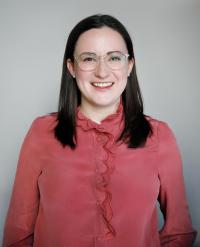Lavallée InSynC Lab
Principal Investigator
The Interpersonal Synchrony and Connection (InSynC) Lab is the first lab specifically dedicated to uncovering the emotional and biobehavioral mechanisms underlying dyadic emotional synchrony.
Led by Andréane Lavallée, PhD, this lab uses cutting-edge technology to observe, code, and evaluate the bidirectional emotional exchanges between parents/caregivers and children, even down to microsecond interactions. This novel research is being conducted through interdepartmental and inter-institutional collaborations with Paul Curtin, PhD (Machine Learning and Behavioral Neuroscience), Catherine Monk, PhD (Obstetrics & Psychiatry), Mark Reimers, PhD (Neuroengineering), and Alfredo Spagna, PhD (Cognitive Neuroscience).
InSynC’s research dives into questions such as:
- What happens in the space between two people?
- How can we scientifically define the “magnetism” between us? How does it develop in early life?
- What are the units of information (neurological, biological, and otherwise) transferred between two people in relationship, and how?
- Why do some people sync up with each other, while others don’t?
- Can we encourage two bodies/brains to sync more?
- Should we encourage this, even in families?
To answer these questions, the InSynC lab leads an interdisciplinary research program focused on novel subjective and biobehavioral measures of human dyadic interactions, with a primary focus on emotional synchrony.
Through this research, InSynC aims to uncover the emotional and biobehavioral mechanisms of parent/caregiver-child dyadic relational health that yield long-term health and well-being through optimized socioemotional functioning. The center will then use this knowledge to develop effective, scalable, practical interventions for every family, in any context.
